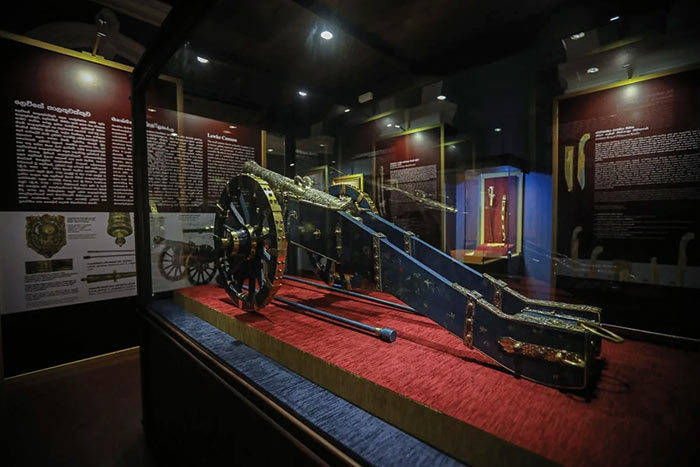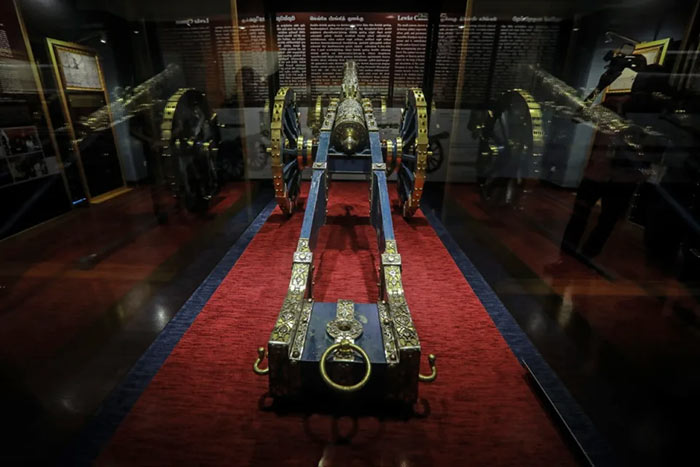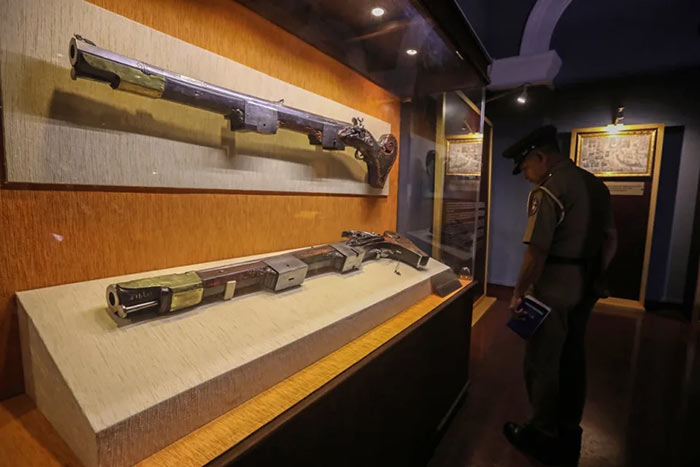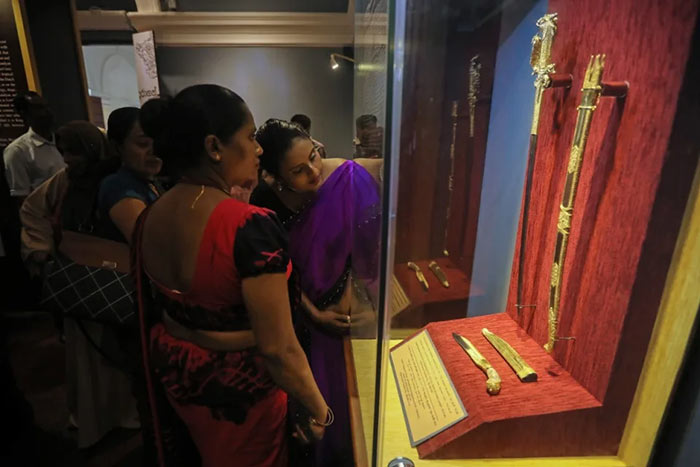Pressure grows on UK over British Museum treasures as Netherlands returns major colonial artefacts

Pressure grows on UK over British Museum treasures as Netherlands returns major colonial artefacts
Pressure is mounting on the UK to return the contested treasures of the British Museum after the Netherlands gave back six valuable artefacts stolen from Sri Lanka during the colonial period.
The Netherlands, which colonised Sri Lanka in the early 17th century, returned the artefacts looted 250 years ago from the Kandy kingdom – the last independent monarchy of Sri Lanka.
Sri Lanka has suggested that “there is more to come” from other countries, including Britain.
The colonial-era treasures, including a cannon inlaid with gold, silver, and bronze known as the “Lewke’s cannon”, a ceremonial sword, and two guns have been now displayed in the Colombo National Museum of Sri Lanka, a statement from the Netherlands embassy said.
The objects were “wrongfully brought to the Netherlands during the colonial period, acquired under duress or by looting”.
“Now, after more than 200 years abroad, six Sri Lankan artefacts will be physically returned to Sri Lanka during a two-day event at the Colombo National Museum on December 5 and 6,” the Dutch embassy said.
Sri Lanka expressed gratitude to the government and citizens of the Netherlands for the return of the artefacts, said Buddhasasana religious and cultural affairs minister Vidura Wickramanayake.

Six cultural artifacts that belonged to the Kandy royal family and were looted by Dutch colonists from the former Kandiyan kingdom in 1765 were returned to Sri Lanka (EPA)
Mr. Wickramanayake said they have started negotiations with other countries as well like Greece and Britain to bring back the looted treasures.
“There are more to come. Not only from the Netherlands but also from other countries like Great Britain. So we have already started negotiations and I hope they will be fruitful very soon,” Mr Wickramanayake said.
The repatriation of the artefacts comes two years after the Netherlands agreed to return the artefacts on request of the Sri Lankan government.
“These objects represent an important cultural and historical value and they are back in Sri Lanka where they can be seen by the Sri Lankan public,” said Dewi Van de Weerd, ambassador for international cultural cooperation.

A Sri Lankan officer looks at ‘Maha Thuwakkuwa’, the unique guns of the Singhalese, which were returned by the Netherlands (EPA)
“The value of returning these objects is important because it is about addressing historical injustices.”
Britain is also home to some of the rarest looted artefacts from Sri Lanka, including a gold-plated statue of the goddess Tara that is currently in the British Museum in London.
In recent decades, the British Museum has frequently encountered criticism over its right to hold ancient treasures, with some asserting that numerous relics in its collection were essentially “looted” during the colonial heyday of the British Empire.

The objects include the Lewke’s cannon, two Gold kastanes (ceremonial swords), a Singalese knife, a Silver kastane, and two guns (EPA)
The issue has sparked a diplomatic row between Britain and Greece over the ownership of the Parthenon Sculptures, known as the Elgin marbles.
It escalated last month after both sides blamed each other when prime minister Rishi Sunak unexpectedly cancelled a meeting with Kyriakos Mitsotakis after the Greek counterpart said he planned to raise the question of their return.
Some of the other high profile contested items include the Benin Bronzes of present-day Nigeria, a collection of at least 23,000 Chinese relics, Rosetta Stone sought by Egypt and two moai originating from Rapa Nui.
(Source: Independent – By Shweta Sharma)
Latest Headlines in Sri Lanka
- Sri Lanka to launch national review on social media’s impact on children January 30, 2026
- Sri Lanka, Saudi Arabia move to boost industrial cooperation January 30, 2026
- Johnston Fernando, two sons and others further remanded until February 13, 2026 January 30, 2026
- Sri Lanka raises daily wage of plantation workers to Rs. 1,750 January 30, 2026
- Sri Lanka expands Internal Affairs Units to 250 more state institutions January 30, 2026


